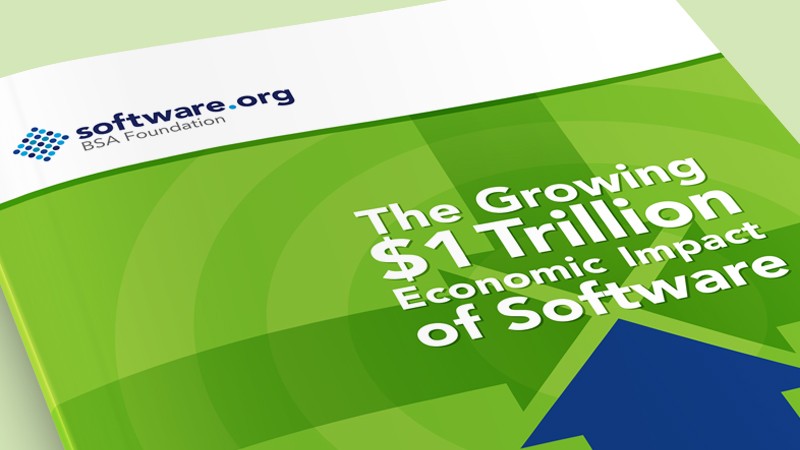Across the US, software empowers countless people and businesses, improving our lives each day in ways big and small. In Michigan, it’s reducing medical conflicts so Americans can live longer, healthier lives. In South Carolina, it’s improving transparency in police departments. In California, it’s helping design smarter and more sustainable infrastructure.
Stories like these are not anomalies. In fact, every state has examples of how they’ve overcome challenges through software innovation. Yet software is far more than a tool for solving problems – it’s also boosting new opportunities and economic growth.
Today, Software.org: the BSA Foundation released a new report that illustrates the scope of the software industry’s impact on the economy in 2016. The results reveal that the software industry is not only flourishing, but also outpacing the US economy in growth. Here are a few key findings:
- Software contributed more than $1.14 trillion to the total US value-added GDP in 2016;
- The software industry supports 10.5 million total US jobs, including 2.9 million direct jobs; and
- Over the past two years, software’s direct economic impact grew by 18.7 percent, while the US economy grew 6.7 percent.
These software-driven economic opportunities aren’t limited to Silicon Valley, or even the IT sector. In 2016, software’s economic impact grew in all 50 states. Thirty-five states experienced more than 20 percent growth in their value-added GDP, with Idaho and North Carolina up more than 40 percent. In addition, software jobs in the United States grew 14.6 percent from 2014 to 2016 – everything from software developers and web designers to project coordinators. Kansas and Indiana lead the way, with software jobs in those states growing more than 30 percent each.
Software is no longer just the code that brings our electronics to life; it’s helping businesses grow faster, paychecks grow bigger, and every state grow stronger. The software industry holds opportunity for all, including those who aren’t in tech. I encourage you explore Software.org’s new report, and learn how software is transforming your state.
To read the full report, visit www.software.org/softwareimpact.


